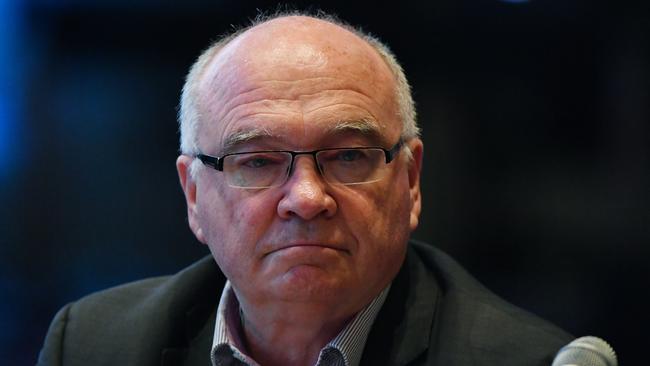Small business: Tell us climate plan cost
Opposition leader under pressure from corporate Australia to reveal the cost to business of his 45pc emissions reduction target.

Bill Shorten is under pressure from corporate Australia over the cost of his 45 per cent emissions reduction target, with the small business lobby group labelling the Opposition Leader “completely disingenuous” for claiming it would come at no cost to the economy.
Council of Small Business Organisations Australia chief executive Peter Strong said Mr Shorten was wrong to downplay the costs of Labor’s ambitious agenda, which he said would hit employment.
Mr Strong said both major parties were failing to tell business about the impacts of their policies to reduce emissions.
“It is completely disingenuous. There is a cost to the economy from both the Liberals’ policy and Labor’s policy,” Mr Strong said.
“Both policies will cost the economy. What we want is a proper plan and change management and so we can say, ‘We know what it is going to cost, we know what we are going to have to do about it, let’s manage this’. And neither side has got a plan.
“It is really disturbing for small business. We want both sides to come out with the costings.”
Australian Chamber of Commerce and Industry chief executive James Pearson said Labor needed to provide evidence to back up its claims the 45 per cent target would lower energy prices and not hit economic growth.
“Given Labor has a much more ambitious emissions reduction target than the Coalition, what impact will that much higher target have over the cost of power and the reliability of it?
“That’s where members are most focused. They are looking for Labor to explain the impact on the cost of power, on the size of the electricity bill, on the reliability of the energy supply from a much higher emissions reduction target.
“Business is looking for Labor to demonstrate what the cost will be and what the impact will be on (energy) reliability.”
Mr Shorten this week declared there would be no extra cost to the economy under Labor’s emissions reduction target compared to the Coalition’s target of 26 per cent of 2005 levels by 2030.
He used research from Australian National University professor Warwick McKibbin to claim his allowance of international carbon credits would ensure the economy would grow by 23 per cent under Labor’s policy.
“I don’t accept the characterisation that it is a cost. We’re going to grow.
“And we’re going to grow because we are going to move to a lower carbon pollution economy,” Mr Shorten said.
Analysis by The Weekend Australian this week showed businesses would spend about $25 billion on carbon credits under Labor’s policy.
Professor McKibbin told The Daily Telegraph yesterday the cost to the economy would be $60bn more under Labor’s target than the Coalition’s by 2030 if there was no carbon trading.
“Compared to a $2 trillion economy, it’s a pretty small number, but it’s still $60bn,” he told the Sydney newspaper.
Labor frontbencher Anthony Albanese yesterday said the “country can’t afford not to act” on climate change.
“The fact is, the economy will grow by 23 per cent under either Labor’s scenario or the Coalition’s scenario,” he said.




To join the conversation, please log in. Don't have an account? Register
Join the conversation, you are commenting as Logout